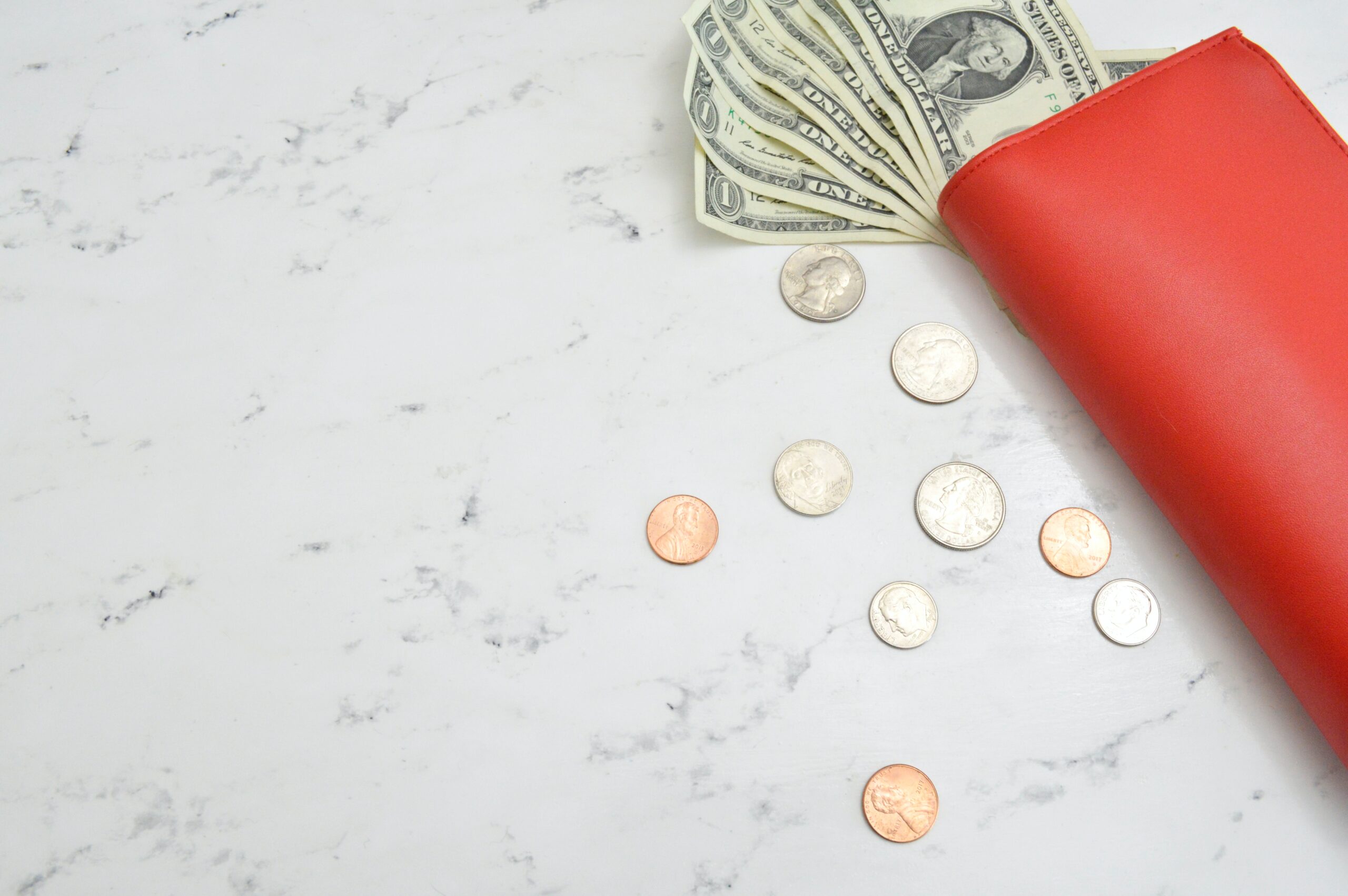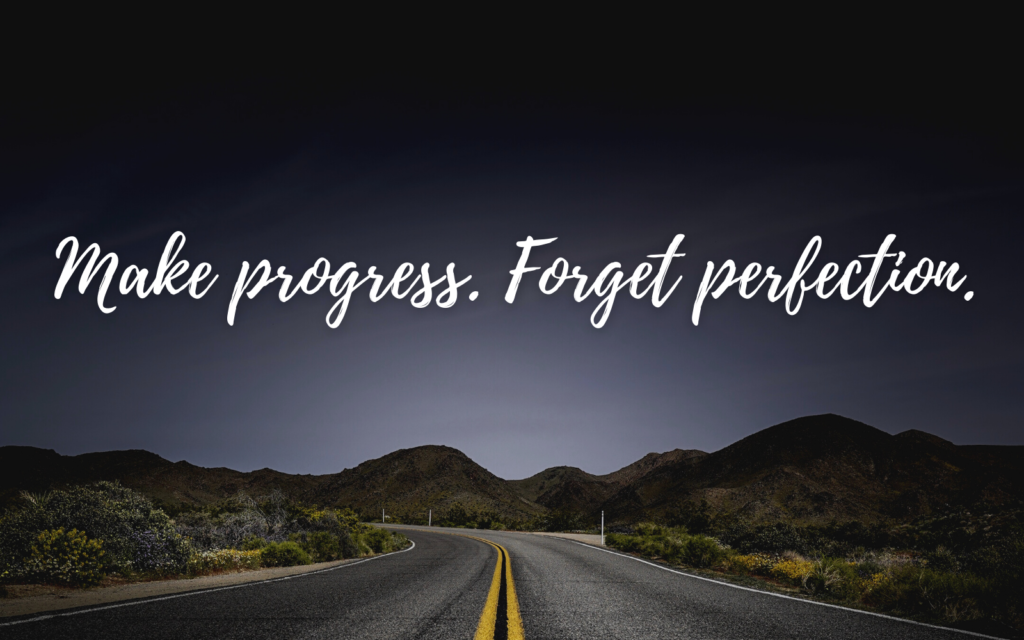

How to spend money without feeling guilty in 10 simple steps
Have you ever spent money on something you were really looking forward to but can’t fully enjoy it?
One of my clients just took a nice family vacation. The kids had a wonderful time, there were plenty of lasting memories, and they had a lot of new fun experiences together.
Sounds wonderful, right?
Well it should have been, but they weren’t able to fully enjoy it.
Why? Was there a slew of bad experiences like someone getting sick, travel issues, or subpar food?
Nope. The reason they couldn’t have a fun vacation had nothing to do with any of that.
What happened was they had other financial goals and felt like the money they spent on the trip was taking away from that.
Every decision they made like what souvenirs to buy, what to order for dinner, and what excursions to take had a cloud hanging over it.
They felt guilty about spending money when they were trying to get out of debt.
This is really common with my clients.
At the beginning of our process working together, we go through a worksheet where we work through a bunch of non-numbers questions to get a feel for what they want their money to do for them.
One of the questions I ask is, “What do you really enjoy spending money on?” Another one is, “When are you at your best?”
The goal here is to figure out what’s important in their lives so we can focus their money on those things and get rid of the stuff that is a waste of money in their mind.
Then going down the list, I ask, “What are you currently spending money on that you feel like you shouldn’t or feel guilty about?”
Here’s where it gets interesting.
Often, the answer to what they feel guilty about is also ON THE LIST of things they enjoy spending money on or that puts them at their best.
What a conflict! On one hand, it’s something important to them but they ultimately aren’t able to feel good about it.
Why does this happen?
Table of Contents
Reasons people feel guilty spending money

Guilt comes from feeling like you did something wrong.
When people spend money that they felt should have gone to a different and better purpose, they can feel bad and have “spend guilt”.
The psychological term for this is cognitive dissonance which is when your beliefs and values are out of alignment with your actions.
But where does this feeling of doing something wrong come from and what are the reasons people feel guilty spending money?
Upbringing
Plenty of things can be traced back to childhood experiences including guilt around money.
Chances are you either operate in line with the messaging you got from your parents about family finances or you think the exact opposite,
If your parents were frugal or lived a modest life, you might feel guilty spending money on flashy things. Or maybe your parents were materialistic but had money problems so you go the other way.
If you were taught to “pay yourself first” but you are living paycheck to paycheck, you probably feel guilty about it. Or you feel like your parents were too frugal so you live with FOMO.
Take a look back and see if your guilt comes from how you were raised.
Circle of friends
No one wants to let their friends down.
Let’s say you go out to a group dinner with your friends. When the bill comes, one of them says, “Let’s just split it equally.”
What do you say? How do you feel?
If you feel like you ordered way less, but you don’t speak up, you may feel guilty spending the money after the fact.
Or if you ordered way more and “get off easy” you may not feel great about that either.
What about comparing yourself to your friends? Guilt about your money situation can come from there too.
What if your spouse’s best friend is doing work on their house, but you don’t have the money to do something like. Or maybe they just took an amazing looking vacation but you don’t have the money to do that for one reason or another.
You may feel guilty about your financial situation if you haven’t earned the salary they do or haven’t been as good with your spending.
(Quick note: Just because you see someone spending money on home improvement or a vacation, doesn’t necessarily mean they’re in a better financial situation than you are. In fact, they may feel guilty spending their money on these projects.)
Lack of Planning & Measuring Progress
Sometimes feelings of guilt come from thinking we should be making progress.
Planning and measuring progress can actually give us permission to spend money, because we know we’re taking care of the things that will build our wealth.
But if you have no plan and don’t know where you stand, it’s hard to know if you’re doing the right thing or sabotaging your financial situation.
Clients who end up having a clear plan in place and are measuring their progress stop feeling guilty about spending money.
Not working together on your money
Division of labor in a family is critical so that you get everything done, especially with kids.
There can certainly be one primary person who handles the family finances.
BUT, both of you have to be involved and understand the numbers.
Both spouses feel guilty when only one knows the financial situation.
For example, another client of mine felt horrible about spending money on personal care. Whenever I hear about something like that, I always like to dig in to see if those feelings are warranted or not.
So we looked at the numbers.
It was perfectly fine! The money being spent was in line and they were actually doing well building their net worth.
The problem was that she wasn’t involved in the finances until we started working together and wasn’t aware of the progress being made.
The one who manages the household finances may hold guilt or blame too if the numbers aren’t where they’d like.
Teamwork will help get rid of the guilt for both of you.
Feeling like we’re letting our loved ones down
It can be a burden to feel like you’ve let your family down.
Everyone I work with has some regret and wishes they had done things differently so they’d be further ahead than they are now. Many wonder where all of their money has gone despite earning a good income.
Whether you feel like you haven’t earned enough, spent too much money, or just wonder where all your money went, it can lead to feeling like you’re disappointing your loved ones.
I see this especially if only one spouse is managing the budget and the other one isn’t involved. They blame themselves for their current circumstances when really it’s a team effort.
The reality is that you are where you are, and guilt won’t serve you. Action will.
Unrealistic expectations
Sometimes we just aren’t being fair with ourselves.
We expect perfection or to be in a certain financial position by a certain age, but we feel bad if we don’t hit that milestone.
It’s great to push yourself and strive for stretch goals, but just make sure you don’t go overboard, because then you feel guilty about money even though you might be right where you should be.
Rather than focusing on the end outcome, focus on the behaviors and habits that will get you there.
(If you want help here, definitely schedule a free 30 minute call with me so we can talk through this together)
When you should feel guilty spending money
Sometimes guilt comes from causing financial harm to others and legitimately letting them down. Whether it’s you or someone else, there are circumstances where the guilt is warranted.
Here’s when you should feel guilty about spending money.
Wasting money on things you don’t care about

I’m not the judge and jury of where you should spend your money, but if you are truly wasting you money on things that don’t serve you, use that guilt as your motivation to make better decisions going forward.
You should be able to spend money on the things that truly matter to you guilt-free if you cut out the wasteful spending.
No plan for paying off credit card debt
Credit card debt is the gateway drug to financial ruin.
Make a plan to pay off your credit card debt. Sure there may be ups and downs. Just when you’re making progress, an unexpected event comes up that runs up the balance.
Life comes up and can take you off target.
But if you have a plan and are fighting and clawing to get it down, you shouldn’t feel guilty.
No plan for your financial future
You won’t feel great spending any money if you don’t have a plan.
When you have a plan and are measuring your progress, you can feel good about spending money on the things you care about most, because you know you’re on the right track.
This doesn’t mean you need a comprehensive budget or a financial plan. You just need to have something you’re working towards.
Financial Infidelity
The best way to avoid a dire financial situation and damage your relationship is to be totally transparent and work together.
If you find yourself occasionally hiding spending or if you haven’t disclosed your debt situation, it’s time to get that done, because it can be a slippery slope.
The guilt of carrying this around can be debilitating.
It’s not always the easiest thing to come clean, especially if things have gotten really out of hand with your spending, debt or losing a lot of money from bad decision making.
Maybe you have a controlling spouse and therefore don’t feel guilty. Or maybe things have gotten to a point where you feel like you just can’t come clean.
In these extreme situations, consult a mental health professional and possibly a marriage and family therapist (MFT) to figure out how to make a change here.
How to spend money guilt-free

Now that we’ve covered why you feel guilty and when it might be warranted, it’s time to get to guilt-free spending.
If you want to know how to enjoy your money guilt-free, there are 10 simple steps to get you there.
Step 1: Figure out what is making you feel guilty and take care of it.
Do you know about the big difference between how cattle and bison deal with a storm coming their way?
Cattle run away from the storm and try to avoid it. But what ends up happening?
They end up prolonging the storm, because they can’t outrun it. The storm catches up to them and they keep running with it.
Bison do the opposite.
They see the storm coming and charge right at it. They face the bad weather and get through it quickly.
How does this apply to guilt free spending?
Confront what is making you feel guilty. First, identify it and see if you can come up with a plan to overcome that feeling. Charge the storm and run right through it.
Step 2: Know where your money is going.
Start tracking your spending. If you’re not tracking it, then it’s hard to know if things are going well or not.
It could be that what’s making you feel guilty isn’t the problem, but you won’t know until you start checking it out.
(By the way, this is different from creating a budget. You don’t need a budget to start.)
Step 3: Be ok spending money on things you enjoy.
I mentioned this at the beginning, but we often carry guilt while spending money on things that we enjoy most.
After tracking your spending, you can take a look at if your spending is in alignment with your values or not. Some refer to this as values based budgeting or values based spending.
Spend money on things that bring you joy as long as it’s within reason and cut out the stuff that doesn’t serve you.
Step 4: Make room to spend on the things you care about.
Now that you’ve been tracking your spending and identified what’s important to you, it’s time to cut out the things you don’t care about and make room in your budget.
This is a process I call Keep, Cut Back, Eliminate.
Go through and identify the things you need to or want to keep spending money on. Then figure out the things you can cut back on without sacrificing the fun. Finally, get rid of anything that you don’t need and don’t want to spend on.
Most of my clients find they can sustainably cut more than 10% of their spending on average without feeling like they’re giving up the fun using this process.
Step 5: Plan to hit your goals.

My clients find that they can spend guilt-free when they know they’re on target to hit their goals.
Figure out what works for you. Should you invest or pay off debt? Do you need to save money in an emergency fund? Should you invest in a Roth IRA or your retirement plan through work? What do you want over the long term?
If you’re not sure where to start to plan your financial future, start by setting up some short term financial goals.
Step 6: Understand your spending triggers.
What causes you to spend money without planning ahead?
Companies are really good at helping you set up bad spending habits, so start thinking about what causes you to overspend. What gets you into trouble?
Is it being bored, seeking retail therapy, not keeping a list, opening up a promotional email?
Whatever it is, try to get to know it, recognize it, and break it.
Step 7: Start looking at the total cost, not the monthly payment.
People often regret buying things they end up not using or fall out of love with. This is especially true when they still have to make monthly payments on it.
It can be a real drag to realize you spent too much money and you still have money coming out of your bank account each month to finish paying for it.
The best antidote to that is simple, but it’s a real mindset shift.
Even if you end up putting something on payments, ask yourself, “If I could afford to pay for the whole thing in cash, would I still spend that amount of money?”
If the answer is no or it makes you pause, then just hold off.
Monthly payments can trick us into thinking that it’s no big deal when we buy it, especially with Buy Now, Pay Later companies.
You’re less likely to feel guilty if you stop focusing on the monthly payment and look at the total cost instead.
Step 8: The 50/50 Rule
It seems like no matter how much more we make, we still end up living paycheck to paycheck. Then we look back and feel bad that we haven’t done better with our personal finances.
But there is a way to avoid lifestyle creep, spending more money as you make more money.
Whenever you get a raise, tax refund, bonus, take at least 50% of your take home pay and add it to what you’re already putting towards saving, investing and paying back debt (wealth building activities).
This will increase your savings rate (which is the best predictor of reaching financial independence) and help you feel like you’re handling your financial responsibilities.
As long as you’re doing that with every extra dollar of earned money you can feel free to spend the other half guilt-free.
Step 9: Prioritize good things to spend money on
As long as you’re spending money on things that will help you become the best version of yourself, you can do that guilt-free.
However, it’s not a license to go into debt to do it or to overspend.
But for example, if you have a higher grocery bill because you’re buying healthy foods, that’s fine. Just make sure that a minimal amount of it ends up in the trash.
If you want to spend money to improve your mental health, that’s money well-spent in my opinion.
Figure out the best things you can spend money on to live your best life and feel great about it.
Step 10: Forget perfection
I’ll be honest here, I have perfectionistic tendencies and it can really get in the way of getting things done.
The mantra I use to get out of this is, “Make progress, forget perfection.”

Just because things aren’t perfect, doesn mean you need to feel guilty about it.
Think of getting your finances in order like an experiment instead of a rigid system that needs to be followed at all costs and any slip up is unacceptable.
If you’re having trouble sticking to your family budget, it’s ok as long as you keep trying.
Live with progress. Don’t live with guilt.
Need help spending money without feeling guilty?
The best way to make sure you don’t feel guilty spending money is to examine your spending and make sure you have a solid plan in place.
If you have a spouse or partner, it’s really important that both of you be involved rather than one of you taking on the responsibility and feel the blame for your financial situation.
The past can’t be changed, but you can take positive steps to get moving in the right direction going forward.
We all could use some help here, so I want to offer you a free 30 minute session with me to figure out how you can start spending money guilt-free by putting a solid plan in place that works for you, your spouse, and your family.
Want help but not ready to talk yet? Get my FREE GUIDE




